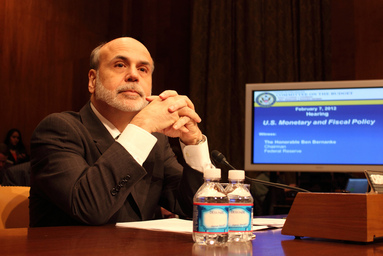
That’s the sort of thing Federal Reserve chairmen say when the economy won’t kick into gear despite their best efforts. We didn’t stress about such things as happiness 10 years ago. But now we are reminded that money doesn’t buy happiness; that we should stop to smell the roses. Don’t worry, be happy.
Sounds great, and there is much truth to the idea that money and happiness don’t necessarily go hand in hand. There are perpetually smiling people living in huts in Africa, and few people seem more dour than a super wealthy person in a continuous snit over one or another of life’s little complications.
| |  The quaint kingdom of Bhutan. But you can be certain of one thing. When governments get into the business of happiness, misery can’t be too far behind. Bernanke made his comments this week at a conference of the International Association for Research in Income and Wealth. Of course he invoked the Bhutanese, an obligatory reference ever since Bhutan’s prime minister addressed the United Nations last spring. For five years now, Bhutan has measured its progress through an index it calls Gross National Happiness, and it is seen as a quaint little kingdom that has resisted the stresses of the 21st century. Few people seem to notice that prime ministers only talk this way when their people are stuck in poverty and lack basic freedoms. It diverts attention away from more pressing issues having to do with personal liberty. Bhutan has only recently begun to allow television, the Internet and a basic form of the consumerism we take for granted. People there only recently were permitted to vote, and not too long before that the government stripped all rights from the Lhotshampas, a minority it felt threatened the nation’s cultural identity. They were forcibly expelled. About 30,000 of them came to the United States. That’s life in a quaint kingdom. Happiness is, of course, a personal thing. Those who have seriously tried to measure it have drawn correlations between it and personal relationships and family. But living in a democracy that allows individual freedoms, choices and entrepreneurship are important, as well. So are sanitary conditions, access to health care and education. The trouble with governments turning their attention from inflation and unemployment to happiness is that someone inevitably will begin deciding what would make everyone else happy. Once happiness becomes a measurement of national progress, it will become politicized. Your happiness may not necessarily begin where my nose ends. That’s why Bernanke ought to stick to inflation and unemployment. We have enough to handle politically with those two. Capitalism and liberty, even with all the government regulations we attach to them, don’t always lead to the best choices. But at least they let people pursue their own versions of paradise. Even Bhutan, when its leader isn’t lecturing the rest of us, seems to be learning that. |

 RSS Feed
RSS Feed

